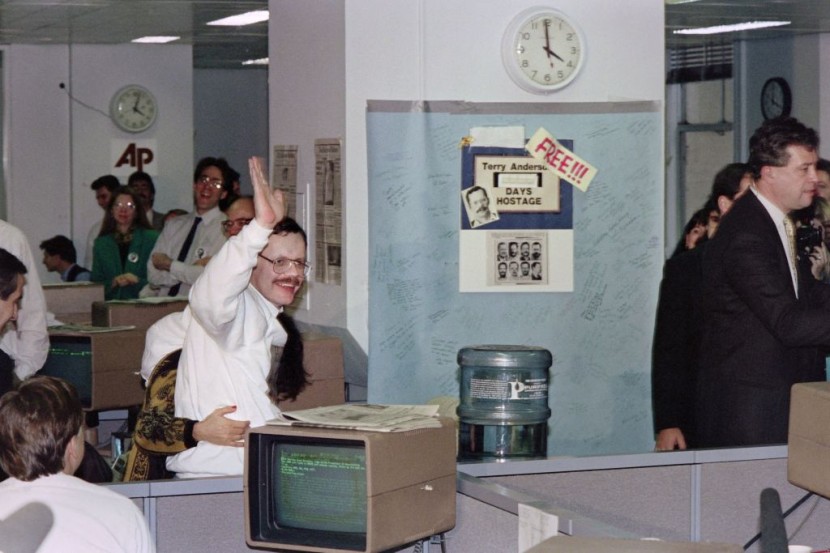
The Associated Press and the family of its retired journalist Terry Anderson—who was abducted by the Shiite Muslim group Hezbollah in 1985 in Lebanon—announced his death at the age of 76 on Sunday (Apr. 21).
According to Anderson's daughter, Sulome, her father died of complications from recent heart surgery at his home in Greenwood Lake, New York.
"He never liked to be called a hero, but that's what everyone persisted in calling him," she said. "I saw him a week ago and my partner asked him if he had anything on his bucket list, anything that he wanted to do. He said, 'I've lived so much and I've done so much. I'm content.'"
Sulome followed in her father's footsteps and eventually became a journalist herself.
Anderson's colleagues have also paid tribute to the journalist-turned-author of the 1993 book "Den of Lions," which recalled his nearly seven-year imprisonment, in which he dealt with beatings, death threats, chainings, and solitary confinement.
"Terry was deeply committed to on-the-ground eyewitness reporting and demonstrated great bravery and resolve, both in his journalism and during his years held hostage," the AP's senior vice president and executive editor Julie Pace said. "We are so appreciative of the sacrifices he and his family made as the result of his work."
Anderson was the AP's chief Middle East correspondent when Hezbollah abducted him and several Westerners while Lebanon plunged into war and chaos, which involved Israel and Iran, which recently had an exchange of missile and drone attacks.
He was eventually released in 1991 and received a hero's welcome at AP's New York headquarters.
"The word 'hero' gets tossed around a lot, but applying it to Terry Anderson just enhances it," former AP president and CEO Louis D. Boccardi said at the time. "His six-and-a-half-year ordeal as a hostage of terrorists was as unimaginable as it was real - chains, being transported from hiding place to hiding place strapped to the chassis of a truck, often given inedible food, cut off from the world he reported on with such skill and caring."
Upon his return to the United States, Anderson became a public speaker, a journalism instructor at several prominent universities, and, at various times in his post-abduction life, a businessman in the food, beverage, and hospitality industry.
He also struggled with post-traumatic stress disorder and won millions of dollars in frozen Iranian assets after a federal court concluded that the country played a role in his capture, then lost most of it to bad investments, which led to him filing for bankruptcy in 2009.
Upon retiring from the University of Florida in 2015, Anderson settled on a small horse farm in a rural area of northern Virginia, which he had discovered while camping with friends.
"I live in the country, and it's reasonably good weather, quiet out here, and a nice place, so I'm doing all right," he lightheartedly told the AP in a 2018 interview.
Terry Alan Anderson was born on Oct. 27, 1947, and spent his early childhood in Vermilion, Ohio.
After graduating from high school, he declined a scholarship to the University of Michigan to join the US Marine Corps. He eventually rose to staff sergeant (E-6) and saw combat in the Vietnam War.
Anderson eventually enrolled at the Iowa State University and finished a double major in journalism and political science and soon went to work for the AP.
He was assigned to Kentucky, Tokyo, and South Africa prior to him getting reassigned in Lebanon.
He was married and divorced three times. His two daughters and two siblings survive him.
"Though my father's life was marked by extreme suffering during his time as a hostage in captivity, he found a quiet, comfortable peace in recent years," Sulome - the journalist's daughter from her second marriage - said in a statement on Sunday. "I know he would choose to be remembered not by his very worst experience, but through his humanitarian work with the Vietnam Children's Fund, the Committee to Protect Journalists, homeless veterans and many other incredible causes."








